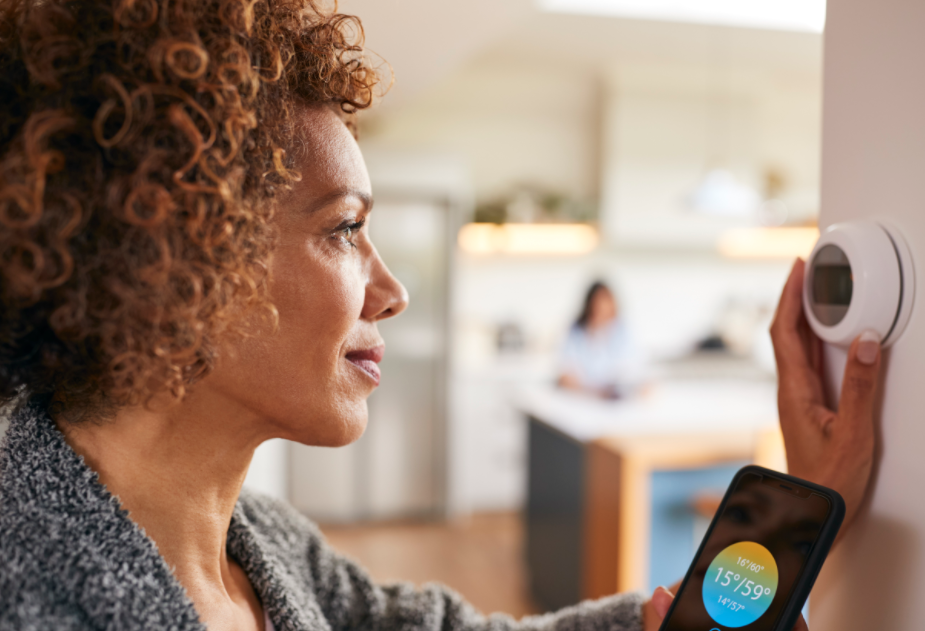Quick, look around your living room: How many nearby objects have internet connectivity? Chances are, you have at least a few of these “smart” devices on hand.
Decades ago, many of us imagined one day living in a tricked out futuristic home, one that cleaned itself, greeted us when we came home at the end of the day—and had dinner waiting on the table come six p.m. Sadly, that vision has yet to materialize, but given the wide array of internet-connected devices that can now help our homes run more smoothly, it does seem as though we’re getting closer.
With the benefit of all these smart devices comes the challenging exercise of remembering the passwords necessary to access their convenient capabilities.
Try LastPass Premium, part of Yahoo Plus Secure, for 30 days free* with a money back guarantee, subscriptions.yahoo.com
What Is a Smart Home, and What are the Benefits of Having One?
In combination, these handy internet-connected objects form what’s known as a “smart home,” or a network of either hardwired or wireless appliances, thermostats, alarm systems, cameras, timers, lightbulbs, and other gadgets that can be controlled from afar (usually via your phone, tablet or laptop).
Having the right devices can make running a house infinitely more convenient. You can grocery shop more wisely thanks to your smart refrigerator, which can send a shopping list to your phone. You can set your smart thermostat to start warming up the house shortly before you get home, so it’s nice and toasty by the time you walk in. You can speak to the person at the door via your smart video doorbell—even if you’re not home.
What Are the Most Common Devices in a Smart Home?
It varies by room. Research shows that in the living room, it’s most common to see a smart speaker, followed by a smart TV, gaming console, hub, remote control, and robot vacuum. In addition, you’ll likely find a variety of smart lightbulbs, thermostats, electrical outlets, air conditioners, ceiling fans, and light switches. Move over to the kitchen and, in addition to that refrigerator-turned-shopping-assistant, you might find a smart blender, dishwasher, oven, microwave, kitchen scale, coffeemaker, meat thermometer or even a smart herb garden. Make your way to the bathroom and you might find a smart toothbrush or bidet. And don’t forget the laundry room’s smart washer and dryer, or the many smart devices you can set up outside, including smart grills, garage door openers, smart locks for your gate, time-controlled lighting systems (including those for holiday light displays) and even a robot lawnmower. (If that doesn’t sound like a home of the future, we’re not sure what would.)
Many people use smart devices to keep their home secure. The video doorbell ranks highest in popularity, but there are also smart indoor and outdoor security cameras, motion detectors, door locks, smoke and carbon monoxide detectors, door and window sensors, moisture sensors to warn homeowners about leaks or flooding, baby and child monitors and air quality monitors.
Try LastPass Premium, part of Yahoo Plus Secure, for 30 days free* with a money back guarantee, subscriptions.yahoo.com

Are There Any Downsides to Having a Smart Home?
While we’re on the subject of security, it’s important that you keep your smart devices password-protected—smart devices can be hacked, and if you have video cameras recording, you’re potentially giving bad actors a window into your home.
If you have ten, twenty, or more smart devices in your home, you’ll want to vary those passwords for extra security—the Federal Trade Commission recommends not using the same password again and again. But how do you keep track of dozens of passwords? A service like LastPass makes it easy to store numerous pieces of important safety info. It generates complex passwords that are harder for hackers to guess, then stores them securely until you need to log in—and then it automatically fills in the username and password for you. LastPass also sends alerts if you’re involved in a data breach, and allows you to store digital copies of important documents, like health insurance cards. Pretty smart.
Try LastPass Premium, part of Yahoo Plus Secure, for 30 days free* with a money back guarantee, subscriptions.yahoo.com

